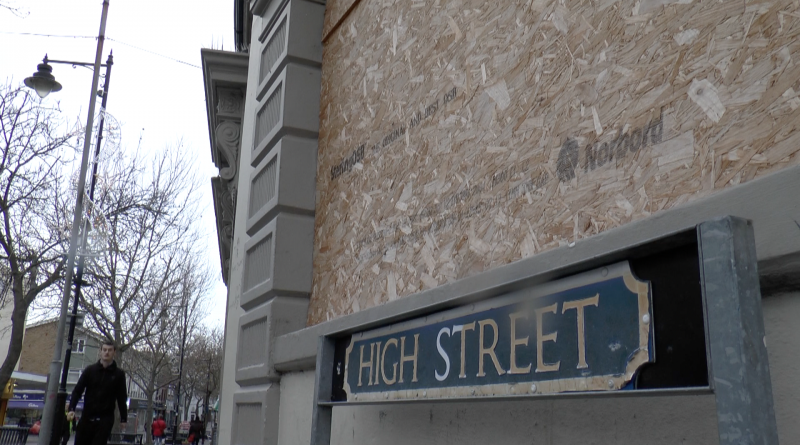Cafes continue to outnumber pubs in Gillingham and the UK
by Andy Robinson
Gillingham reflects a nationwide trend of cafes and coffee shops outnumbering the declining traditional British pub.
Local Data Company figures show that over 2,000 town centre pubs, bars and clubs closed down between 2011 and 2016 whilst 6,000 cafes, fast food outlets and coffee shops opened in the same period.
Cafe culture has been on the rise since the mid-1990’s when American sitcom Friends popularised the coffee shop and the introduction of mobile connectivity prompted more on-the-go interactivity.
The rise of commuters also means that people now no longer have the time to mingle in the evenings and prefer to efficiently socialise by grabbing a quick coffee.
As part of the Home Counties, Kent suffers from this more than most and Gillingham High Street proves this with nine cafes outnumbering three pubs, one of which has closed and is under renovation (as pictured)
Lorraine Halliwell, owner of Past and Present Medway Micro-pub, believes the lack of quality establishments on Gillingham High Street is deters people from going out to local pubs.
“There’s not a lot to do in Gillingham High Street, we need more shops to do more really.
“A lot of it is charity shops and bookmakers so we need to improve the High Street to get people out to the pubs.”
The Office for National Statistics revealed that the number of young people – the age group most likely to go out drinking – deciding to be teetotal has risen from 19% in 2005 to 27% in 2013.
The South East has a comparably low teetotal figure of 18% to London’s high of 29%, potentially affected by cafes and tearooms accounting for 20% of businesses in the Capital.
Ozai Tabak, Manager of The Medway Café, believes the excellence of his products is what makes his eatery successful.
“The competition is quite tough with so many other cafés on the High Street. It is the people’s choice where they want to go. I have been here on Gillingham High Street for over 10 years and I’ve just got busier and busier.
“People no longer want to drink a lot of alcohol and instead want to sit down for some good quality food which is a good thing obviously. They’ve started looking after their tummies
“The area is nice and we talk to our customers for a good personal service, we make very good food, everything is nice and they give us five stars.”
As food and drink culture continues to change, an additional influx of small niche businesses such as juice bars and speciality restaurants could alter the future of our High Streets further.




